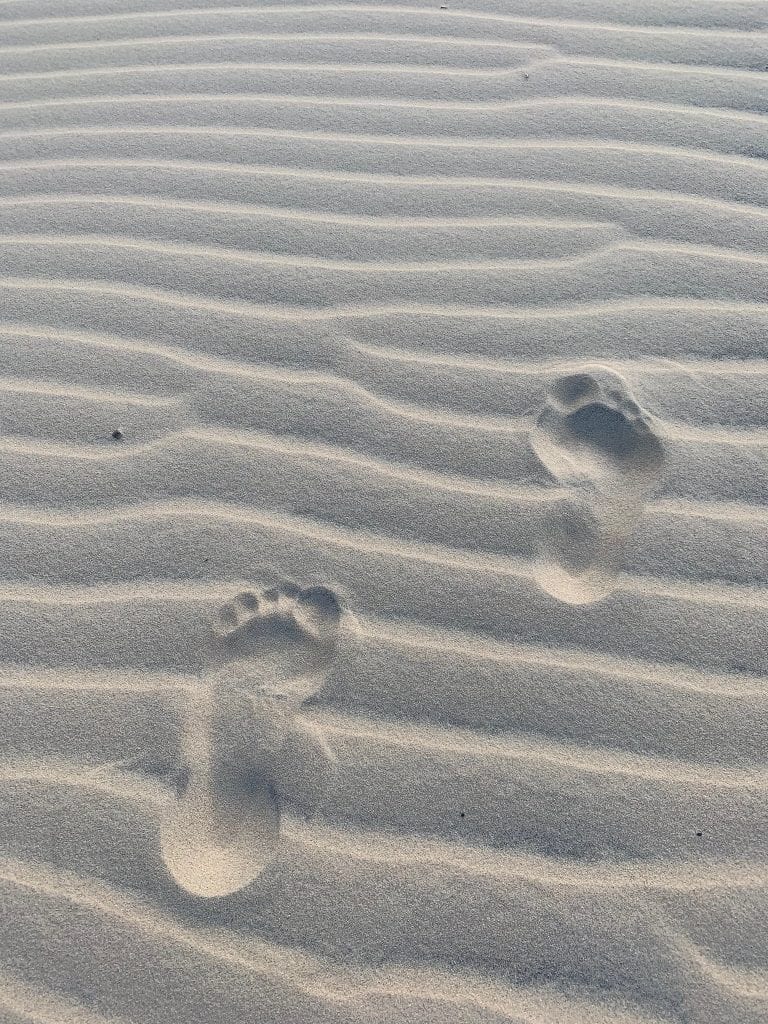IN 2015 we committed ourselves to achieving a goal of operating on a 100% Carbon Neutral basis by 2020. As we approach the end of 2019, and with just a couple of months to go, we are thrilled to say that we are on track to doing just that! This is a a huge achievement by our team and one which will benefit not just our planet but also demonstrates our commitment to the first of the three Butchulla laws – “what is good for the land comes first”.
Change has already happened
Our first step towards carbon neutrality was to assess exactly how much carbon we had been emitting into the atmosphere in the first place. This is no easy task and one that has taken 2 and a half years so far by our dedicated team who measure everything from fuel usage to meat consumption, to calculating how much waste we send to landfill to where we source our equipment from. We are on track to having a full picture of our total carbon output by the end of December 2019. But we haven’t waited. As we learn more about our true carbon footprint, we put this knowledge into action by making changes to the way we do things which have already had a positive environmental impact.
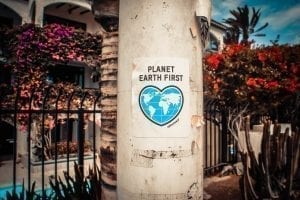
What we have done to reduce our carbon footprint
It’s worth remembering that when it comes to helping the planet, it’s the little things that can often make the biggest difference. For us it has been focusing on how we consume, what we consume and how we take responsibility for our waste. Here are just a few examples of things we do to reduce our carbon footprint on our Fraser Island Tours.
Meat consumption is down
We have reduced our meat consumption by 20% and routinely encourage our guests to choose the veggie option rather than the meat option. This is huge. The meat industry is one of the biggest contributors to climate change so just this small change has meant huge benefits to the planet. We are about to take beef off the menu entirely and replace it with Australian reared kangaroo, which means less carbon without compromising on those tasty bbq dinners.
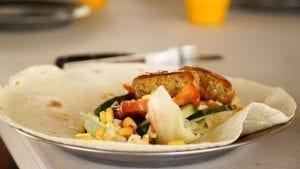
Our tents are now built to last
Gone are the days of semi-disposable pop up dome tents imported from China. We now use heavy canvas, durable and Australian made tents that have already proved their worth. Where before our tents would wear out after a few weeks, the new better quality tents purchased over a year ago are still going strong and are more spacious and comfortable to boot. Buying domestically made products over imported ones is another small but vital step towards reducing carbon emissions, and we’re always proud to buy Australian. Durability equals less landfill.
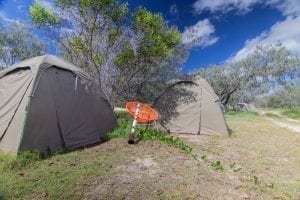
None of our waste is left on the island
We now bring 100% of our waste off the island. Anything that goes in the bin goes to landfill, and we are committed to taking full responsibility for all our waste. Anything brought back from the island is sorted, recycled and disposed of responsibly – that’s 70,000 litres of waste which is not going to landfill. We also compost our food waste which has further reduced the amount of waste we send to landfill and brought our carbon footprint down even further.
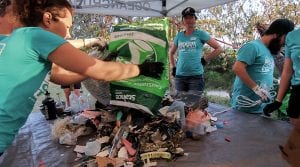
We educate our guests on environmental responsibility
We believe this is vital to the long term health of our planet. The more of us that know what we can do to reduce, reuse and recycle the further our reach is. We now educate our guests on the impact of plastic pollution and get everyone involved in mini beach clean ups. Asking everyone to spend just 5-10 minutes of collecting waste demonstrates how much there really is out there and what a difference we can make by picking up just a few items every time we head to the beach. Our goal is to make our guests as passionate about the environment as we are, and education is a huge part of that.
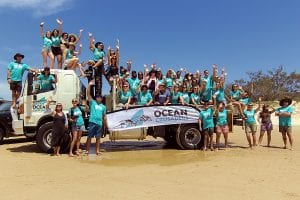
How we plan to offset our carbon emissions
Once we have assessed our total tonnage output of carbon emissions by the end of December, we will be offsetting it all through a fantastic programme called Trees for Tourism. This amazing organisation has bought back land from forestry which means trees that were previously used for logging are now under the management of land care. They will be replanting a whopping 6,000 acres of forest from Noosa to Rainbow Beach, an area that was previously the largest pine plantation in the Southern Hemisphere. The replanted forest will act as a fresh habitat for local wildlife, primarily koalas, as well as countless other creatures and plant life. We are thrilled to be able to contribute in this way to our local community and environment.
Our goal really is in sight! We are serious about the environment and how we impact Fraser Island and the future health of the land, its wildlife and our planet as a whole. Small changes really do make the biggest difference and we are so proud to be on our way to being 100% carbon neutral!

